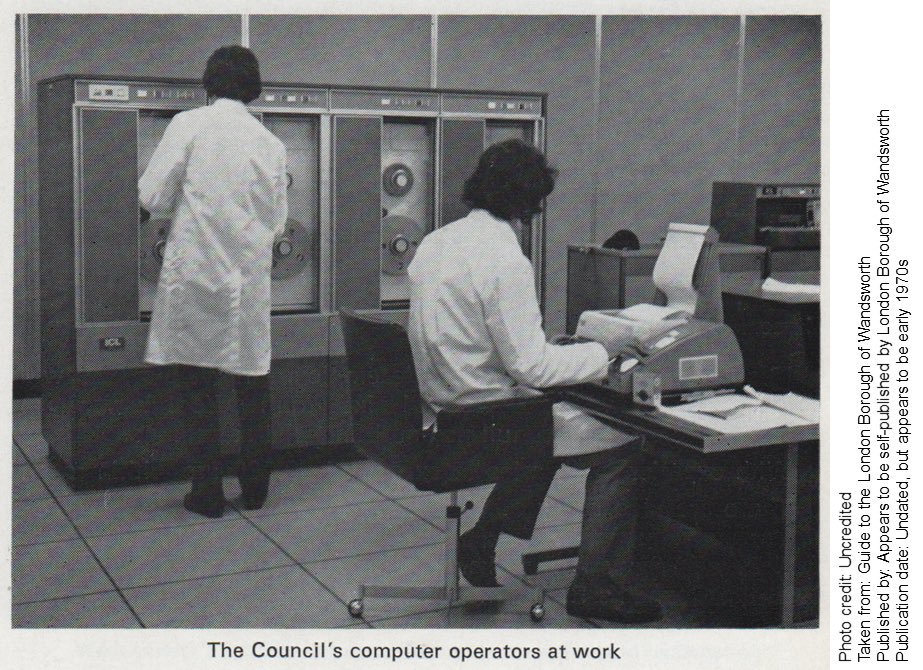From the perspective of today and looking backwards to the use of language in this commercial we apply different semantics than would have been perceived at the time. The same is true when interpreting anything historical - we just don't expect it to apply to something (relatively) so modern and contemporary.
I was, at the time of this commercial, performing research into computer languages and also operating system command languages. At that time computer languages, whether for programming or operations or interaction were considered arcane and specialist and not suitable for "common business use". It was a problem being worked on by many academics and spawned a number of publications at that time.* The titles of some of these seminal works will hint at what was going on:
- Barnett, M. P. (1969). Computer programming in English. Harcourt, Brace & World.
- Barnett, M. P., & Ruhsam, W. M. (1969, May). SNAP: An experiment in natural language programming. In Proceedings of the May 14-16, 1969, spring joint computer conference (pp. 75-87). ACM.
- Barnett, M. P., & Ruhsam, W. M. (1968). A natural language programming system for text processing. IEEE transactions on engineering writing and speech, 11(2), 45-52.
- Barnett, M. P. (1970). SNAP—A programming language for humanists. Computers and the Humanities, 4(4), 225-240.
The movement was, that if we could utilise the power of the natural language understood by the user they could become "power users" without the need for the intervention of a third party (the operator or programmer):

COBOL was originally written from this perspective, which is basically "VERB" "NOUN" type commands, where the verb and noun are recognised English words. A further development in this vein is what we now know as SQL:
- Chamberlin, Donald D; Boyce, Raymond F (1974). "SEQUEL: A Structured English Query Language" Proceedings of the 1974 ACM SIGFIDET Workshop on Data Description, Access and Control. Association for Computing Machinery: 249–64.
So at this time, any interactive command interface that used English verb/noun constructs was understood to be "Understanding English" and the advertising copy-writers pushed it as such.
I had interactions with Sperry at about that time and I am sure they felt they were including some state-of-the-art interfaces with their systems to make them business useful tools, but I'm sure Grace Hopper felt the same about COBOL.
From today's perspective none of this looks like using or understanding the English language on the part of the computer.
* It took me a while to dig through my archives and look at the old thesis and papers again.
